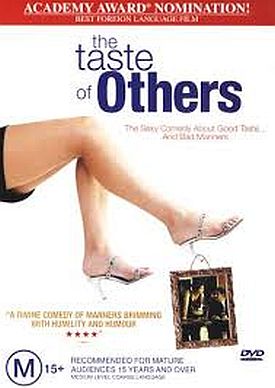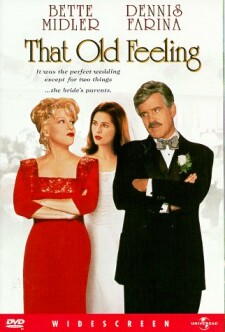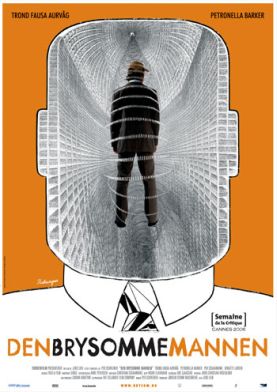Taste of Others, The (Le Goût des Autres)
It’s not easy, being human. The older you get the more you understand this. It doesn’t get any harder, necessarily, but at some point, usually in middle age, you realize how hard it has been all along. Agnès Jaoui’s delightful film, Le Goût des Autres or The Taste of Others is about such an epiphany in the life of an actress, Clara (Anne Alvaro), whose love and mastery of the great roles of the classic French theatre have not prepared her so well as they might have done for the moment at which she must see another human being as he really is and not as she has invented him for herself, as an object of condescension and casual contempt. Meanwhile, all around her in this beautifully structured film, others are learning — or not learning — the same lesson. And so, naturally, are we.
Clara at 40, worried about losing her looks and the scarcity of work for older female actresses, supplements her income by privately tutoring rich clients in English. One of her pupils, an uncultivated bourgeois industrialist called Castella (Jean-Pierre Bacri) goes to see her perform as Racine’s Bérénice and is unexpectedly touched to the soul. He has no words to express his admiration, and there is a wonderful scene when, after his second visit to see her perform, he goes backstage to Clara’s dressing room where she is receiving a cascade of more or less pro forma but effusive compliments from her friends and fellow theatre people. She hardly notices him and his more heartfelt tribute: “You were tops,” he stumbles, unable to think of anything else to say. “I came twice.”
Of course she misses the sincerity of this widow’s mite of an appreciation. “I’m off to see moustache man,” she tells her artsy friends as she goes to her English lesson with Castella. “What a jerk! He tried to tip me.” Meanwhile he is no better appreciated by his wife, Angélique (Christiane Millet), an interior decorator who treats him like a child, patronizes everybody else and seems to feel genuine affection only for her vicious little dog, Flucky (a hilariously misconceived attempt to give him a chic, English-sounding name). Flucky regularly bites people, including Castella’s sister, Béatrice (Brigitte Catillon), recently abandoned by her husband, whom Angélique shamefully patronizes in ostensibly trying to help. “You never did hit it off with him,” she says accusingly to her sister-in-law as she pets naughty Flucky.
“I didn’t know I had to hit it off to avoid being bitten,” says Béatrice.
Castella’s English lessons have been undertaken at the suggestion of his assistant, Weber (Xavier De Guillebon), because of an impending deal with some Iranians. For the same reason he has insisted that the boss, a naturally modest and unassuming man, take on a driver, Bruno (Alain Chabat), and a bodyguard, Franck (Gérard Lanvin). For much of its length, the film seems to revolve around these two, as Bruno takes up with an old flame, Manie (Miss Jaoui herself), whom he has literally forgotten, while Manie and Franck, a tough ex-cop disgusted with what he takes to be corruption on the force, are attracted to each other much more powerfully. Only at the very end do we see the connection between this sub-plot, which at times looks like becoming the main plot, and the story of Mr Castella’s infatuation with his English teacher.
Part of the reason that Castella is kept so much on the periphery of the action is to reinforce the sense of his passivity. To both women Castella is an object — to be despised by the one and manipulated by the other and patronized by both. The point, I suppose, is to make us see him as Clara does, as rather a buffoon. He foists himself upon her and her friends, treating them to dinner and seemingly never realizing their contempt for him. “He’s a twit,” says one of his employees behind his back. “They were making fun of him all night and he didn’t realize it.” Never does he seem more a fool that when he turns up to one of his English lessons and shyly reads aloud a poem in comically broken English he has written for her.
Clara naturally rebuffs his clumsy affection, but from then on all her prejudices and assumptions about him are overturned one by one. The process begins when Castella turns up at an exhibition of paintings by an artist friend of hers. As usual, he is socially maladroit in this sophisticated company, but he buys a painting. Clara assumes that he has done so merely to impress her, since he is completely ignorant about painting as about other things that are important to her. Clara complains that her friend the artist is taking advantage of his ignorance and goes to see Castella to tell him so. Meanwhile, Angélique won’t have the painting on her walls because it clashes with her pink and cream decor.
It is at this point that Castella finally snaps, telling Angélique that he has suffered long enough without complaining in a house that is all her taste and that looks to him like a candy store. If the one thing that he likes is not to be allowed on her walls, he’ll go somewhere else. To Clara he is equally scathing: what must she think of him to come and tell him he should not have bought a painting he genuinely likes? He wasn’t trying to impress her. She had rejected him and even he wasn’t too stupid to understand that. Shocked by his perception of the contempt she thought she had kept hidden from him, Clara goes away humbled but with a new respect for her ignorant but eager pupil which soon turns to something warmer.
Angélique is not so adaptable, but it is she who utters what may be the most significant line in the film when she says patronizingly to the heartbroken and washed-out Béatrice: “Can’t you see that some things go together and some things don’t?” She thinks she is commenting on Béatrice’s lack of taste, but it is really a much more common sort of not-seeing, and one of which she herself is guilty — as are we all when we think we know someone (usually, funnily enough, a loved one) au fond and have to be shocked finally into seeing his or her reality for the first time and not as the person we have invented for ourselves. Castella himself has the same experience with poor Weber. It is, we are almost persuaded to believe, the central human experience. Who knew?
Discover more from James Bowman
Subscribe to get the latest posts to your email.







